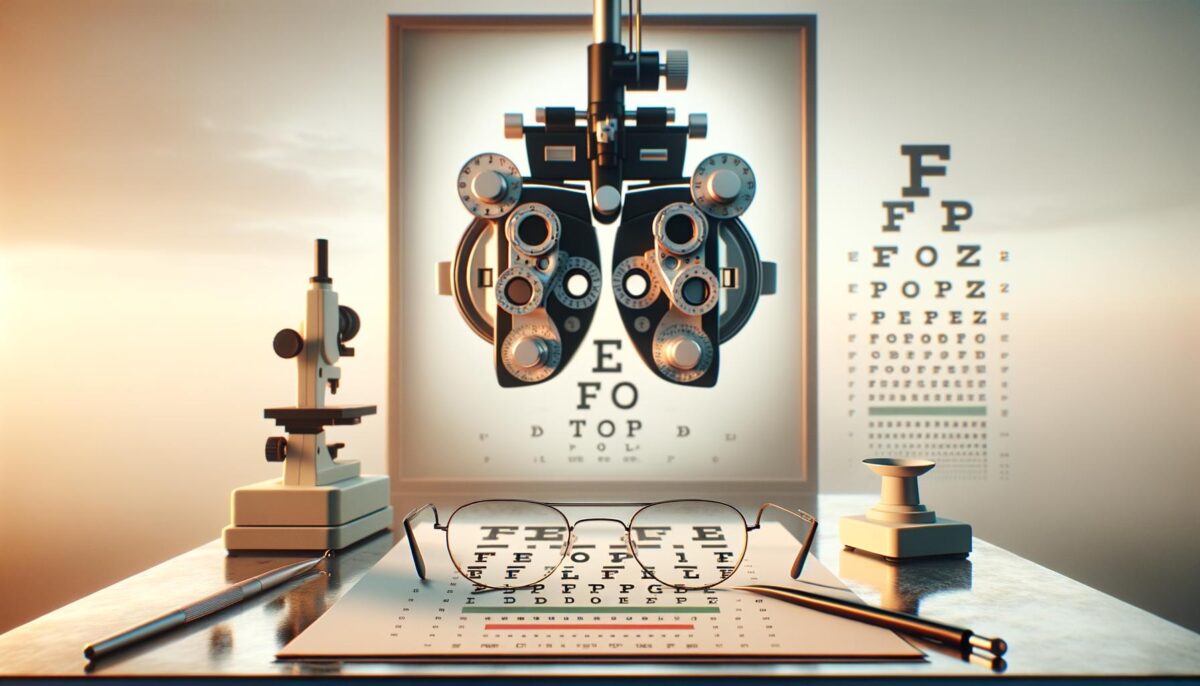The Basics of a Vision Test
A vision test is a comprehensive examination that evaluates the health and performance of your eyes. It measures components such as visual acuity, depth perception, color vision, and the ability to focus. These tests are typically conducted by eye care professionals during routine check-ups to ensure that your vision meets the necessary standards for daily activities such as driving or reading. The tests are non-invasive and designed to identify any potential issues that might require corrective measures like glasses or contact lenses. Regular vision tests can help detect conditions early, providing a better chance for effective treatment.
Common Tests Performed During a Vision Examination
Eye care professionals use a variety of tests and tools during a vision examination. Here are some of the most common ones you might encounter:
- Visual Acuity Test: This test measures how clearly you can see, typically using a Snellen chart which displays letters or symbols of various sizes.
- Refraction Assessment: This determines the appropriate prescription for corrective lenses by using a device called a phoropter.
- Color Vision Testing: It checks for color blindness and involves identifying numbers or shapes within a pattern of dots.
- Retinal Examination: Also known as fundoscopy, this involves viewing the back of your eye, or retina, typically using an ophthalmoscope.
- Eye Muscle Test: This assesses the movement of your eyes and how well your eye muscles coordinate.
These tests collectively form a vision test and provide a comprehensive view of your ocular health.
The Role of Vision Tests in Preventative Healthcare
Vision tests are an integral part of preventative health care. They not only assess vision quality but also help in the early detection of serious health conditions. For example, an eye exam can reveal signs of diabetes, high blood pressure, and even neurological disorders. By identifying these conditions early through a vision test, patients can take proactive steps in managing their health, potentially preventing more serious outcomes. Besides, maintaining clear vision helps safeguard quality of life, enabling individuals to perform daily activities safely and efficiently.
How Often Should You Have a Vision Test?
The frequency of vision tests depends on several factors, including age, health condition, and risk factors. General guidelines suggest:
- Children: Eye exams should start around six months, then at three years, and just before starting school. School-age children typically need an exam every one to two years.
- Adults: From ages 18 to 60, it’s recommended to have an examination every two years. Seniors over 60 should have annual exams to detect age-related issues early.
- At-Risk Individuals: People with a family history of eye disease, diabetes, or those in occupations requiring strong visual acuity should have more frequent assessments.
Regular check-ups ensure that any vision changes are addressed promptly, maintaining optimal eye health.
Preparing for Your Vision Test
There are simple steps you can take to prepare for a vision test, ensuring it is as effective as possible. Firstly, collect any required medical history or medications that could affect eye health. If you wear glasses or contact lenses, take them along to your appointment. Make a note of any vision changes or discomforts you’ve experienced since your last exam. Being prepared helps your eye care professional assess your vision accurately and make informed decisions about your ocular health needs. Good preparation enables a more comprehensive examination, leading to better personalized eye care advice.
Conclusion: The Impact of Vision Tests on Daily Life
Regular vision tests play a crucial role in maintaining not only eye health but overall well-being. They help in the early detection of eye conditions and other health issues, allowing for timely intervention that can prevent deterioration of health. Ensuring regular vision tests as part of your health routine can greatly enhance your quality of life, keep you productive, and help you enjoy activities with clearer vision. Investing time in understanding and participating in vision assessments is a proactive step towards a healthier future.
